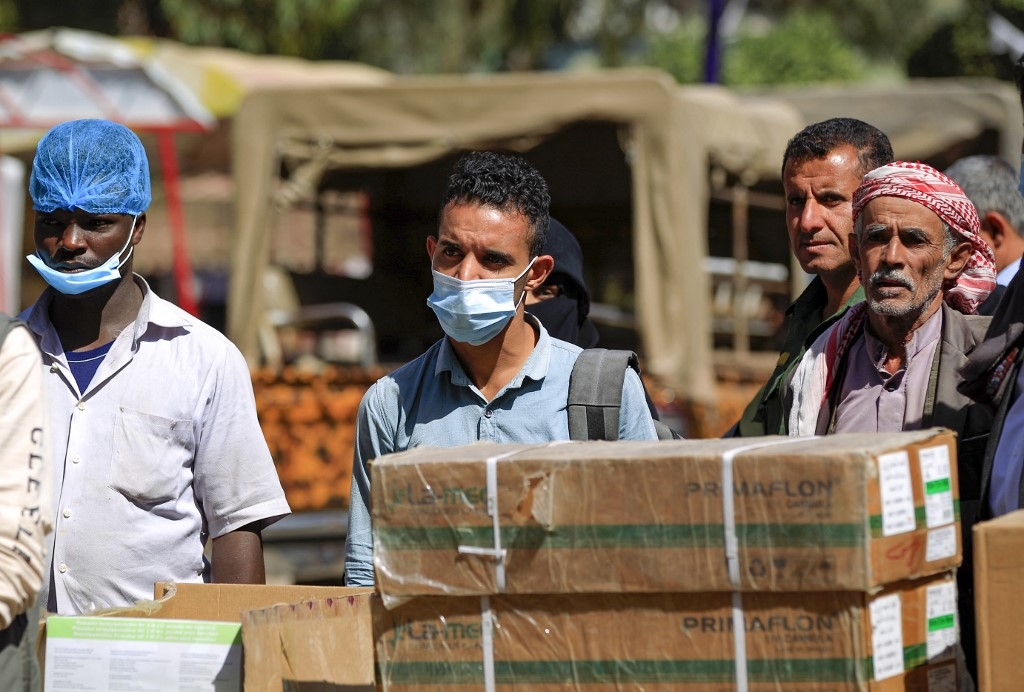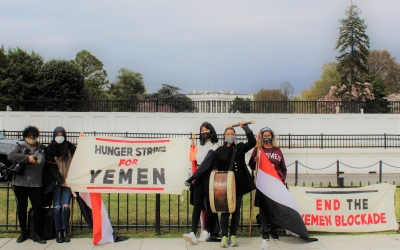Biden urged by lawmakers to pressure Saudi Arabia into ending Yemen blockade

A bipartisan group of US lawmakers has called on the Biden administration to pressure Saudi Arabia into lifting restrictions on imports to Yemen, where half a decade of war and blockade has led to one of the world's worst humanitarian crises.
In a letter sent to US Secretary of State Antony Blinken on Tuesday, members of the House Foreign Affairs Committee said the "outright blocking" of goods and humanitarian assistance into ports in Yemen has led to increased inflation, "economic collapse, and the failure of public services in Yemen".
"Since 2015, the restrictions imposed by the coalition have critically exacerbated the humanitarian crisis in Yemen," they wrote.
"We understand that the conflict in Yemen is complex and affects broader political and security interests, but we nonetheless ask that you stress the need to remove import restrictions immediately on humanitarian grounds.
"Ending this practice will boost Yemen's economy, de-escalate the conflict, and prevent this humanitarian catastrophe from worsening - all important U.S. objectives."
The letter, led by congressmen Ted Deutch, Joe Wilson, and Ted Lieu, comes on the heels of a similar effort earlier this month when more than 70 Democratic lawmakers sent a letter to President Joe Biden calling on him to pressure Riyadh into ending its blockade on Yemen.
It was also supported by Gregory Meeks, chair of the House Committee on Foreign Affairs.
Saudi Arabia and its regional allies, chiefly the United Arab Emirates, started a bombing campaign against Yemen's Houthi rebels in March 2015. The coalition also introduced an air and naval blockade that it says aims to prevent the Houthis from smuggling weapons into the country.
The war has killed more than 230,000 people, caused outbreaks of disease, and brought Yemen to the verge of famine.
State Department denies there is a blockade
In February, Biden announced the end of US support for offensive operations in the Saudi-led coalition's war in Yemen, but said Washington would continue to help the kingdom defend itself against Houthi attacks on its soil.
Last month, during a briefing to the United Nations Security Council, UN Special Envoy Martin Griffiths painted a grim picture of the political, economic and humanitarian crisis in Yemen, saying it was exacerbated by a blockade of fuel ships entering the country's main port, Hodeidah, which is controlled by the Houthis.
The letter also comes as the US special envoy for Yemen, Tim Lenderking, heads to the Gulf on Wednesday in an effort to push forward negotiations on a political solution to Yemen’s six-year civil war.
The lawmakers pointed to the announcement that Saudi Arabia allowed four fuel ships to dock at Yemen's port in the Red Sea, saying that it was a sign that the "administration’s engagement is bearing fruit".
Still, while pressure to end the blockade from lawmakers in the US has increased, both Saudi Arabia and the Biden administration have denied that there is a blockade on Yemen.
"It is not a blockade," a State Department spokesperson told a Vox News reporter on Monday.
Near the US Capitol building in Washington, a group of Yemeni activists remain on a hunger strike that started on 29 March, calling for the lifting of the siege on the war-torn country.
Middle East Eye delivers independent and unrivalled coverage and analysis of the Middle East, North Africa and beyond. To learn more about republishing this content and the associated fees, please fill out this form. More about MEE can be found here.





